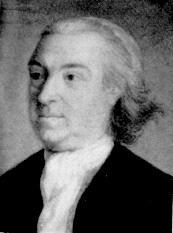Rebellious Intentions for State Intervention
IN AMERICA, WE DON’T DO KINGS!
Cailean Gallagher
17th August 2025
Walking in the suburbs of a California college town this spring I passed many a yard sign making the polite demand, ‘Respect the Rule of Law’. Two weeks later at a Hands Off! rally I watched children waving placards emblazoned with slogans like liberté, égalité, fraternité. The hodgepodge of republican rhetoric continued this summer when thousands joined the No Kings protests on 14 June. IN AMERICA, WE DON’T DO KINGS, its organisers’ website declares. Resist arbitrary power! Rein in executive prerogative! Respect the rule of law!
The dichotomy between executive power and the rule of law stems from a tendency, baked into the politics of the US, to fall into what Marc Dunkelman has described as the binary of Hamiltonian and Jeffersonian views about the right power and prerogatives of the state. The debate preoccupied the so-called Founding Fathers: whereas Thomas Jefferson was wary about a state overreaching boundaries necessary to maintain individual liberties, Alexander Hamilton made the case for a strong, independent executive. In liberal debates the Jeffersonian position has tended to prevail, appealing to a genealogy of classic liberalism whose roots have been (questionably) traced to Scottish Enlightenment thinkers like Adam Smith. But those on the other side of the divide also have Scottish precedents to draw from.
Sir James Steuart
1713-1780
One neglected source for Hamiltonians is the Scottish political economist James Steuart who was disparaged by Smith but admired by Hamilton, as well as by Hegel and Marx. A committed Jacobite for the first half of his life, Steuart spent much of his long exile writing his mighty Principles of Political Oeconomy. This four-volume work offered a vision of a strong, active and centralised state. Indeed, Steuart’s intentions for state interventions went far beyond Hamilton’s. When Principles was published in 1767, it was roundly criticised in Britain for its continental tendencies and illiberal instincts. It set out many interventions Steuart thought would expand prosperity and investment, secure wages and work, increase tax upon the rich, and rein in the power of the corporations to control the sources of profit. For Steuart, securing good wages, investment in jobs, and high taxes required both strong government and the subordination of this government and the higher classes to laws in the public interest.
Steuart’s idea of the state’s subordination to the laws (as I have argued in my recent article) was perfectly consistent with the state having the capacity to provide for the freedom and subsistence of the whole population. At the head of this state was of course a king; and just as Hamilton and Marx were influenced by his analysis, Steuart had drawn many of his ideas from advocates of radical monarchic reform in both Scotland and in France.
The spirit of Jacobite rebellion that developed in Scotland in the 1730s was stoked by Prime Minister Walpole cracking down on civil liberties and passing new tax laws to the advantage of the rich and powerful. When the rebels rose in 1745, Steuart became one of their chief propagandists, drafting a manifesto for the would-be king that set out a series of interventions aimed at improving prosperity and ending the corrupt, partial tendencies of Hanoverian rule.
An Incident in the Rebellion of 1745, an oil on canvas, painting by David Morier depicting the 1746 Battle of Culloden
Steuart’s ideas were also influenced by earlier debates in France about how to expand the power of the state. One likely inspiration among many was the ‘democratic monarchy’ of the Duc d’Argenson, a minister of France and a supporter of the Jacobites, whose Considerations imagined a monarch instituting reforms that concentred power with the state. The plan would increase equality among the people such that no class could buy out government, and just laws would be executed locally. There are certain parallels in Steuart’s plans for a state with power to monitor, constrain, and highly tax the vested interests who lorded over an unequal economy, “limiting the power of the higher classes” and “restrain[ing] the great lords”. Steuart did concede that centralising power and increasing the royal prerogative brought risks, but thought a powerful king acting in the public good was almost always preferable to corporate forces shaping society to private ends. Reform advancing what he called “subordination of the laws” would result in people becoming justly and equally subordinate to laws alone. In the end, he believed, “no person, no class should be under a greater subordination than another.”
It was ideas like these that would inform Hamilton’s strident insistence that the US constitution required something like the royal prerogative, bridled so that the king “can have no distinct interests from the public welfare”, as one contemporary reported Hamilton remarking. It was also ideas like these that led French Revolutionaries to see in Steuart’s Principles a model for their efforts to centralise and rationalise the state and its objectives. And it was ideas like these which made Adam Smith aim (as he privately admitted) to confute Steuart, while never mentioning him in the Wealth of Nations. Karl Marx, who read and referenced Steuart throughout his later works, saw his approach as being ‘in antithesis’ to the eighteenth-century precepts of natural liberty, the individualistic morality that underpinned Smith’s classical liberalism and its pernicious effects. Steuart duly earned his place in the pages of marxist.org.
James Steuart did not accept that strong and centralised power was bound to breach the rule of law, nor that the pursuit of prosperity was incompatible with reining in corporations and raising hefty taxes on the wealthiest. The programme might have a Jacobin ring to it, but its groundwork was firmly Jacobite. Steuart contributed to a body of thinking which provided arguments for a strong state that milks the rich, pursues nimble investments and interventions within the bounds of the law, ensures employment and decent minimum wages for the working class, and sustains this central power against oligarchic buyout and arbitrary exploitation.




